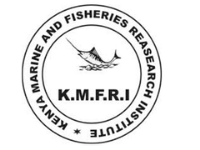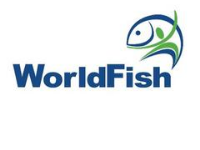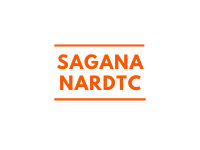Kenya Marine and Fisheries Research Institute (KMFRI) is a State Corporation established in 1979 by the Science and Technology Act, Cap 250 of the Laws of Kenya, which has since been repealed by the Science, Technology and Innovation Act No. 28 of 2013 which has recognized KMFRI as a national research institution under section 56, fourth schedule. KMFRI’s mandate is to undertake research in “marine and freshwater fisheries, aquaculture, environmental and ecological studies, and marine research including chemical and physical oceanography”, in order to provide scientific data and information for sustainable development of the Blue Economy.
KMFRI role in the programme is to provide technical assistance to provide technical assistance in building of robust national quality assurance services for the fisheries sector and aquaculture Subsector and to assess at inception capacity gaps in the area of quality assurance at the SDF&BE, Fish Inspection and Quality Assurance Division.
KMFRI Fish Inspection and Quality Assurance (FIQA).
FIQA’s role in the programme is providing technical assistant in National Quality Services by drawing up and implementation of the residue monitoring and control plan for aquaculture, inspection and enforcement of residue legislation, of aquaculture enterprises. FIQA also supports the programme in capacity building for fish pathologists at the County level as well as provision of fish disease surveillance field equipment to the participating Counties.
By means of an MoU with the ABDP PCU, Food and Agriculture Organization (FAO) through a Technical Cooperation Program (FAO/TCP/KEN/3703) is providing support to farmers and other aquaculture stakeholders training under Subcomponent 1.1 using Farmers’ Field School (FFS) extension approach.
FAO is supporting the training of aquaculture farmers and other aquaculture stakeholders in areas of production, management, business planning, nutrition etc.
After the expiry of this TCP, ABDP will make arrangements to provide complimentary support for continuation of FAO support in these areas
The TCP focuses on:
- Developing a harmonized approach to aquaculture extension training in training institutions
- Devising linkages between the farmers, civil society and private sector to access inputs cost-effectively and access markets through value addition and sustained economies of scale
- Re-modelling the clusters into business-oriented groups to develop productive alliances with other stakeholders along the aquaculture value chain
- Constitute and strengthen producers’ groups to develop into commercial organizations with effective market linkages such as farmers’ cooperatives, fish feed manufacturers, aggregators, out-growers, service providers, processors and traders
- Seek to address salient issues affecting production and consumption of fish to promote household nutrition and gender mainstreaming in aquaculture.
The expected IMPACT of this initiative is to:
Reduced poverty and increased food and nutrition security among rural communities.
Expected OUTCOME:
- A supportive policy environment for aquaculture production
- Smallholder productivity and profitability increased and
- Fish consumption increased in the targeted counties.
To achieve the expected outcome, the TCP has four expected OUTPUTS:
- Harmonisation of the aquaculture extension services in National, County Governments as well as training institutions
- Improved smallholder capacity for aquaculture-based production through scaling up innovations and documentation of good practices
- Strengthened aquaculture sector enabling environment and support services
- Food and Nutrition education mainstreamed in extension services and utilization of fish and fish products at community level improved
The TCP is coordinated by:
- A National Program Coordinator from the SDFA & BE
- An FAOKE focal person for the TCP
World Fish is an international, nonprofit research organization that harnesses the potential of fisheries and aquaculture to strengthen livelihoods and improve food and nutrition security. Globally, more than 1 billion people obtain most of their animal protein from fish and 800 million depend on fisheries and aquaculture for their livelihoods. WorldFish is a member of CGIAR, a global research partnership for a food-secure future. Their goal is to reduce poverty and hunger by improving fisheries and aquaculture.
ABDP collaborates with World Fish Centre on research in the following areas: a) fish selection and breeding; b) fish nutrition and feed technology; c) field trials for growth; d) best management practices; e) climate smart aquaculture technologies; and f) marketing and information systems research in addition to commissioned research activities.
Ramogi Institute of Advanced Technology (RIAT) was founded in 1968. It is one of Kenya’s pioneer Technical Training Institutes offering diploma courses in Automotive Engineering, Electrical and Electronics Engineering, Social Work & Community Development, Catering and Housekeeping, Clothing & textiles among other courses. Many of these are geared toward self-employment.
RIAT is one of the oldest technology institutes in Kenya and is located at Riat Hills about 12 Kilometers from the heart of Kisumu City along Kisumu- Kakamega road. The institute aims at producing responsible intellectuals as agents of change, through training with a difference by using applied research, quality production and innovations which are the core values of the institute.
ABDP supports the capacitation of fisheries extension services in the Counties to carry out their envisaged role under the Programme. Training for County extension officers is carried out at the Ramogi Institute of Advanced Technology in the western region.
Sagana Centre is located about 2 km within Sagana Township in Kirinyaga County, approximately 104 Km Northeast of Nairobi City. The Centre occupies an area of approximately 59.37 hectares with 109 operational ponds of which 72 (150m2) are research ponds, and the rest used for spawning, fingerling production and grow-out production. The farm is supplied with water from River Ragati by gravity all-year round. The Centre’s training facilities is used for training County Extension Officers from the Programme’s implementing Counties in the central and eastern regions.





